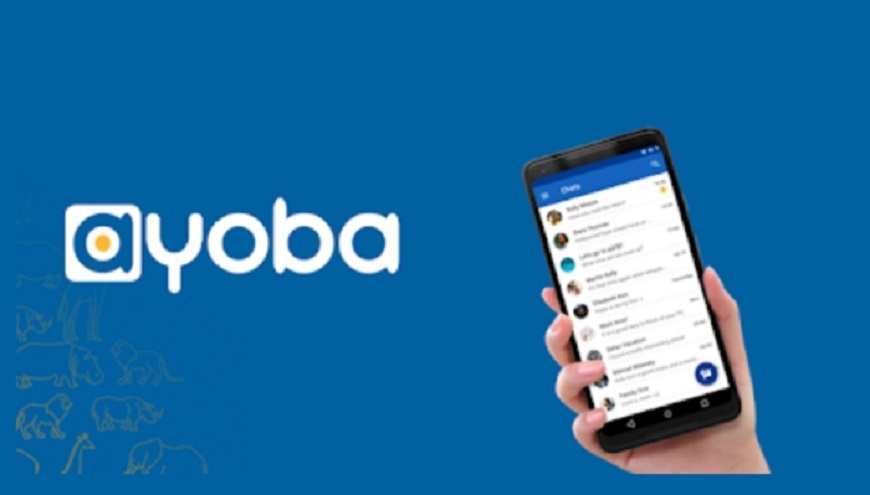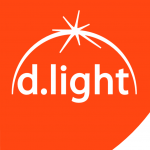Technology
Ayoba Reiterates Commitment to Users Privacy

By Adedapo Adesanya
Following privacy issues faced by a social messaging app, WhatsApp, and the debate that ensued in the tech space, African messaging app, Ayoba, has reiterated its focus on protecting users’ privacy and security.
In a statement, the company assured its users that it’s not possible for messages in the app to be read by anyone, or shared to any third parties.
The app features end-to-end encrypted peer-to-peer private messaging. A user’s contacts and location are only available to other users if explicitly shared by the account owner.
Users can feel confident that their private data will remain private, and is treated with the utmost care and respect by Ayoba via our Privacy Policy.
The Interim CEO of the company, Mr Richard Cimardi, noted that, “All the content is curated. We have a team of editors who check every post on our content channels before it goes live. This includes our music and entertainment channels. So it’s 100 per cent family-friendly and safe for our younger users’.
“We have a team of editors who check every post on our content channels before it goes live.
He explained that the app also has other unique feature including its availability in 22 languages: English, isiXhosa, isiZulu, French, Arabic, Dari, Pashtu, Hausa, Afrikaans, Igbo, Jula, Kinyarwanda, Luganda, Pidgin [Cameroon], Pidgin [Nigeria], Portuguese, Sesotho, Setswana, Swahili, Twi, and Yoruba.
Content channels are predominantly English and French, but the app offers content across all the languages as well, in Dari, Pashto, isiZulu, isiXhosa and more.
Ayoba recently launched an in-app assistant, Aya, to guide new users on how to use an instant messaging app. Aya appears automatically in everyone’s chats and can run a variety of interactive tutorials for key features within the app.
Ayoba is looking forward to a busy 2021, upgrading the already extensive list of features – including exciting new content in Channels and local MicroApps from across Africa, and also introducing new functionality, including in-app VoIP voice and video calls.
Free Data for MTN Users
In partnership with MTN, customers of the service provider are automatically allocated free data to use Ayoba features. Allowances range from 50MB daily to unlimited usage, depending on the country (with the exception of Benin Republic).
Free data allocations can be used for all activities available on the app – including messaging, browsing, gaming and listening to music.
Ayoba was awarded the Africa Digital Award for Best Mobile Application in November 2020, in a voting process involving both industry judges and the public.
Ayoba offers Group Chat, Status updates, MicroApps and over 100 content channels bringing news, fashion, beauty, sports, education and music listening to the users. Ayoba has also an extensive game selection of more than 120 games currently available.
Since its launch in May 2019, Ayoba has reached millions of monthly active users. It offers users free access to an ecosystem of digital and rich media services through channels, micro-apps and payment solutions, embedded within an African super-app.
Ayoba is highly localised and tailored for African and Middle East consumer needs, supporting 22 relevant languages. Users can send and receive encrypted messages, share photos, videos, files and voice notes and can also subscribe to live channels.
Localised content is available through curated channels aimed at entertaining, educating and empowering communities as well as a range of games. Ayoba is available for Android users on the Google Store, via its website (Ayoba.me).
Technology
Leticia Otomewo Becomes Secure Electronic Technology’s Acting Secretary

By Aduragbemi Omiyale
One of the players in the Nigerian gaming industry, Secure Electronic Technology (SET) Plc, has appointed Ms Leticia Otomewo as its acting secretary.
This followed the expiration of the company’s service contract with the former occupier of the seat, Ms Irene Attoe, on January 31, 2026.
A statement to the Nigerian Exchange (NGX) Limited on Thursday said Ms Otomewo would remain the organisation’s scribe in an acting capacity, pending the ratification and appointment of a substantive company secretary at the next board meeting.
She was described in the notice signed by the Managing Director of the firm, Mr Oyeyemi Olusoji, as “a results-driven executive with 22 years of experience in driving business growth, leading high-performing teams, and delivering innovative solutions.”
The acting secretary is also said to be “a collaborative leader with a passion for mentoring and developing talent.”
“The company assures the investing public that all Company Secretariat responsibilities and regulatory obligations will continue to be discharged in full compliance with the Companies and Allied Matters Act, applicable regulations, and the Nigerian Exchange Limited Listing Rules,” the disclosure assured.
Meanwhile, the board thanked Ms Attoe “for professionalism and contributions to the Company during the period of her engagement and wishes her well in her future endeavours.”
Technology
Russia Blocks WhatsApp Messaging Service

By Adedapo Adesanya
The Russian government on Thursday confirmed it has blocked the WhatsApp messaging service, as it moves to further control information flow in the country.
It urged Russians to use a new state-backed platform called Max instead of the Meta-owned service.
WhatsApp issued a statement earlier saying Russia had attempted to “fully block” its messaging service in the country to force people toward Max, which it described as a “surveillance app.”
“Today the Russian government attempted to fully block WhatsApp in an effort to drive people to a state-owned surveillance app,” WhatsApp posted on social media platform X.
“Trying to isolate over 100 million users from private and secure communication is a backwards step and can only lead to less safety for people in Russia,” it said, adding: “We continue to do everything we can to keep users connected.”
Russia’s latest move against social media platforms and messaging services like WhatsApp, Signal and Telegram comes amid a wider attempt to drive users toward domestic and more easily controlled and monitored services, such as Max.
Russia’s telecoms watchdog, Roskomnadzor, has accused messaging apps Telegram and WhatsApp of failing to comply with Russian legislation requiring companies to store Russian users’ data inside the country, and of failing to introduce measures to stop their platforms from being used for allegedly criminal or terrorist purposes.
It has used this as a basis for slowing down or blocking their operations, with restrictions coming into force since last year.
For Telegram, it may be next, but so far the Russian government has been admittedly slowing down its operations “due to the fact that the company isn’t complying with the requirements of Russian legislation.”
The chat service, founded by Russian developers but headquartered in Dubai, has been a principal target for Roskomnadzor’s scrutiny and increasing restrictions, with users reporting sluggish performance on the app since January.
Technology
Nigerian AI Startup Decide Ranks Fourth Globally for Spreadsheet Accuracy

By Adedapo Adesanya
Nigerian startup, Decide, has emerged as the fourth most accurate Artificial Intelligence (AI) agent for spreadsheet tasks globally, according to results from SpreadsheetBench, a widely referenced benchmark for evaluating AI performance on real-world spreadsheet problems.
According to the founder, Mr Abiodun Adetona, the ranking places Decide alongside well-funded global AI startups, including Microsoft, OpenAI, and Anthropic.
Mr Adetona, an ex-Flutterwave developer, also revealed that Decide now has over 3,000 users, including some who are paying customers, a signal to the ability of the startup to scale in the near future.
SpreadsheetBench is a comprehensive evaluation framework designed to push Large Language Models (LLMs) to their limits in understanding and manipulating spreadsheet data. While many benchmarks focus on simple table QA, SpreadsheetBench treats a spreadsheet as a complex ecosystem involving spatial layouts, formulas, and multi-step reasoning. So far, only three agents rank higher than Decide, namely Nobie Agent, Shortcut.ai, and Qingqiu Agent.
Mr Adetona said SpreadsheetBench measures how well AI agents can handle practical spreadsheet tasks such as writing formulas, cleaning messy data, working across multiple sheets, and reasoning through complex Excel workflows. Decide recorded an 82.5% accuracy score, solving 330 out of 400 verified tasks.
“The result reflects sustained investment in applied research, product iteration, and learning from real-world spreadsheet workloads across a wide range of use cases,” Mr Adetona told Business Post.
For Mr Adetona, who built Decide out of frustration with how much time professionals spend manually cleaning data, debugging formulas, and moving between sheets, “This milestone highlights how focused engineering and domain-specific AI development can deliver frontier-level performance outside of large research organisations. By concentrating on practical business data problems and building systems grounded in real user environments, we believe smaller teams can contribute meaningfully to advancing applied AI.”
“For Decide, this is a foundation for continued progress in intelligent spreadsheet and analytics automation,” he added.
-

 Feature/OPED6 years ago
Feature/OPED6 years agoDavos was Different this year
-
Travel/Tourism10 years ago
Lagos Seals Western Lodge Hotel In Ikorodu
-

 Showbiz3 years ago
Showbiz3 years agoEstranged Lover Releases Videos of Empress Njamah Bathing
-

 Banking8 years ago
Banking8 years agoSort Codes of GTBank Branches in Nigeria
-

 Economy3 years ago
Economy3 years agoSubsidy Removal: CNG at N130 Per Litre Cheaper Than Petrol—IPMAN
-

 Banking3 years ago
Banking3 years agoSort Codes of UBA Branches in Nigeria
-

 Banking3 years ago
Banking3 years agoFirst Bank Announces Planned Downtime
-

 Sports3 years ago
Sports3 years agoHighest Paid Nigerian Footballer – How Much Do Nigerian Footballers Earn












